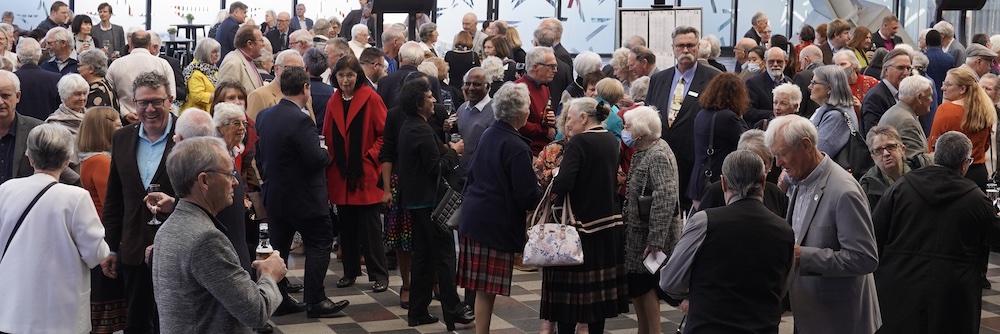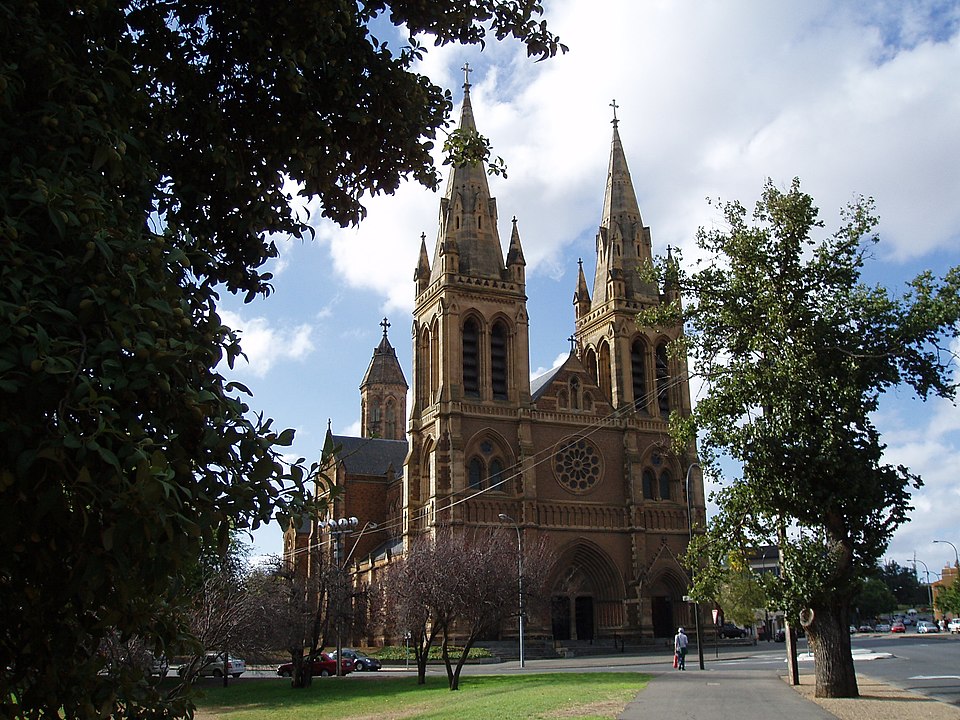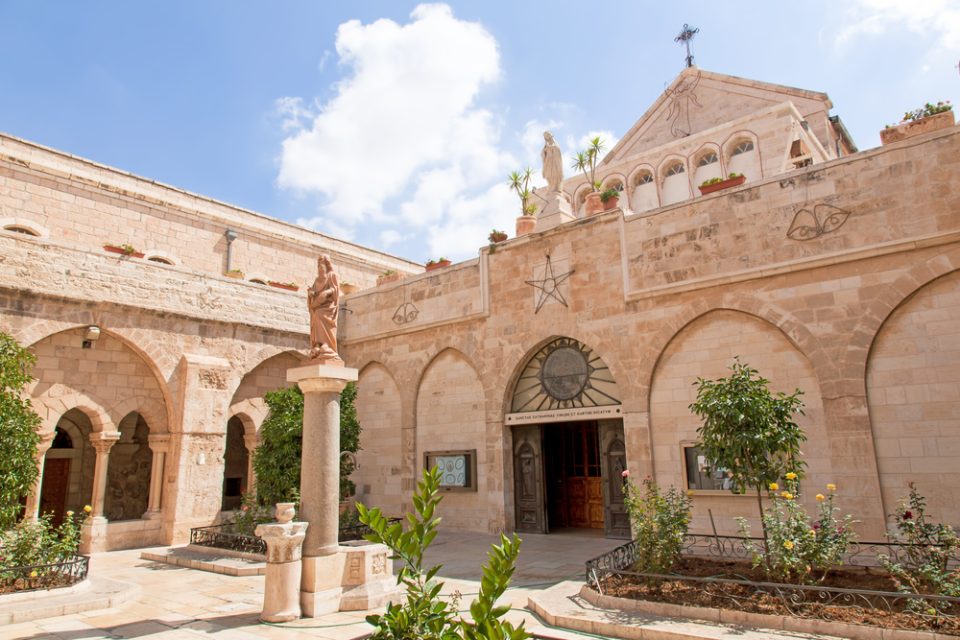Rethinking the use of our Diocesan assets
In the first of a three-part series, the Ven. Sophie Relf-Christopher shares some surprisingly encouraging findings from her master’s dissertation research into the Diocese’s cultural health, and the potential flourishing of its parishes.
A friend once described a scene, the description of which still haunts me occasionally. After my friend’s elderly parents had died, along with his wife, he cleaned out his childhood home. The precious treasures kept in the glass cabinet – those that as a child he was not permitted to touch – ended in the skip with the broken crockery and piles of old magazines. Pristine perhaps but with completely unfulfilled potential of being used and useful. This should not be the fate of the Anglican Diocese of Adelaide.
We should reconsider the deployment of our Diocesan assets to increase our missional effectiveness this year, not in a decade, not when the lights go out.
In my dissertation I asked whether the organisational culture of the Anglican Diocese of Adelaide could be reshaped to facilitate flourishing parishes? To answer that I delved into our Diocesan organisational culture to investigate any dissonance between the perception of our current culture, and our preferred culture. In this short series I will share some suggestions of positive ways we may respond to the research findings that are likely to help our Diocese flourish.
In this first article we need to sketch out the contemporary cultural landscape of the Anglican Diocese of Adelaide andseriously consider rethinking of the use of our assets.
Now is the time to act
Our Diocese is in an exceptional position to reap the strategic benefits of a brand-new Diocesan Vision 2023-2025, which was developed with wide consultation. We are led by an Archbishop who is also the head of the Anglican Church, the Primate of Australia. We also enjoy significant financial reserves, with modest income, substantial land holdings, some continuing standing in the community, and a faith that contains an internal logic toward sharing its story (Mark 6:15; Matthew 28.19; Matthew 24:14; Luke 4:18) and expanding the kingdom of God (Welby in Adelaide 2022).
The challenge before us
The Diocese is also in an exceptionally challenging position. The prestige and cultural power it once enjoyed is waning, and it has seen a dramatic reduction in church attendance and adherents in recent decades.
Added to this, we find ourselves within a broader culture that is increasingly secular, and from which we have become distant both culturally and demographically. Many remaining churches are unsustainably close to one another, while many parishes find it impossible to maintain ageing buildings and clergy stipends.
There are 75 churches in the Anglican Diocese of Adelaide across 58 parishes. Only 30 per cent of those parishes can be described as steady or strong, according to Dr. Ruth Powell, Director of National Church Life Survey Research. In the past 21 years at least 20 churches have closed with only two being absorbed into a new parish.
The gap between the Diocese and the society we seek to engage is significant. In 2020, the average South Australian was 40 years old. In contrast, the average age in the Anglican Diocese of Adelaide was 68.
In October 2022, the Diocese adopted a new Diocesan Vision 2023-2025 which retained the focus on flourishing with the vision headline: Adelaide Anglicans Flourishing & United in God’s Love.
That the new vision, which seeks to enable Adelaide Anglicans to flourish, flies in the face of the prevailing reality of declining influence and capacity. However, the sentiment is not counter to our aspirations for our Diocese, nor is it entirely beyond our influence.
A theology of our resources
The Diocese has significant income-generating funds. Of course, those funds serve some major functions – to fund the operations of the Synod Office, to meet our obligations, to provide reserves for a ‘rainy day’. But I argue they should also be used to provide sufficient seed-funding for new projects.
Cultural storms are already upon our Diocese, and frankly, we all know it has been raining cats and dogs for some time.
Now is time to use some of our reserves to promote flourishing parishes so we can deliver effective ministry in Adelaide for another 175 years.
Inevitably not all projects we fund will be successful, and we may find that a range of initiatives do not have the desired results. However, fear of failure must not be allowed to excuse inaction. Jesus, after all, was at pains to dissuade his followers from falling prey to unhealthy and feeble fear.
One of the ways the Diocese could signify a commitment to cultural change might be to offer project funding, or financial support for initiatives it wants to encourage, particularly those that will enhance the culture the research has uncovered we want to promote.
As we will discover over the next two articles, my research found a desire to increase clan-like connectedness in our Diocese, and to explore entrepreneurial and evangelistic projects – both of which are geared toward missional effectiveness of the Church of God. The generous seed-funding I am proposing could be linked to projects that would be conducive to improvements in those cultural elements the research identified as clearly and near-universally preferred.
Empower the churches whose lights do go off
For a couple of decades now, on average one church a year closes its doors. This means significant heartache for the parishioners affected. But should this be the bitter end?
If the site is sold, or new income drawn from those previously parish-benefitting assets, it might be a very pastoral move, as well as culturally significant idea for our Diocese to permit the closing-church/parish to have some broad determination about how the funds are spent or invested.
Worthwhile projects that a closing church may wish to see their legacy connected to might include ministry formation or the support of ordination candidates, seed-funding for missional projects, or assisting in some new ministry to start-up.
Conceivably we might see St [insert church name]’s ordination fund, or endowment account for new ministry.
Building a Diocesan corpus of funds to its own end, is surely not the business of the body of Christ. We may need to think about how we are deploying – or not deploying – our resources with some urgency.
Part Two: Who do you think you are Adelaide Anglicans?
Part Three: I’ll tell you what you want, what you really, really want






